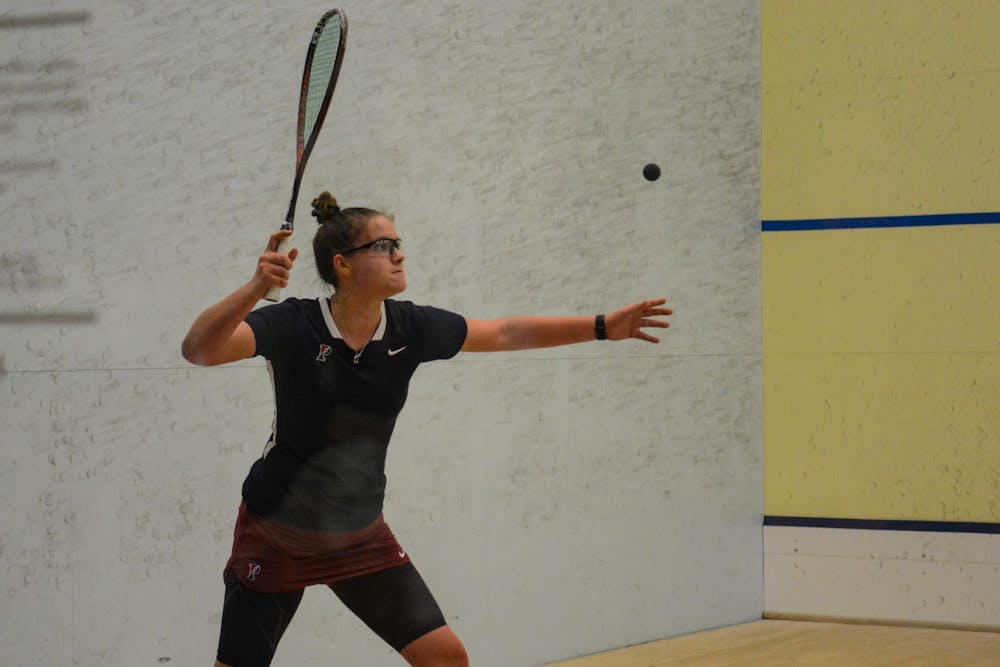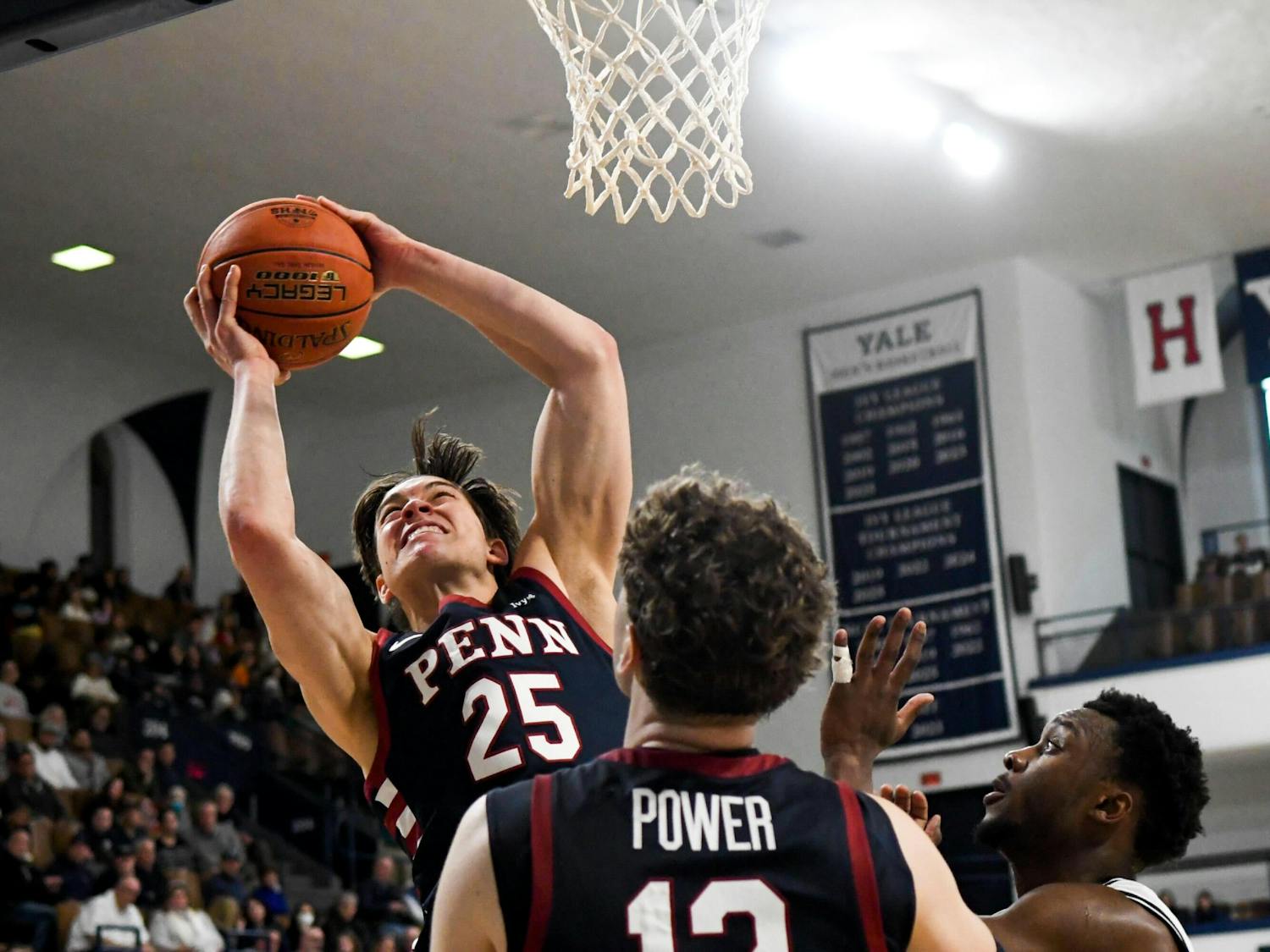When Julia Buchholz arrived at Penn, she never expected to become captain of Penn women’s squash by her junior year.
Her name was absent among the high school recruits. She applied to Penn on regular decision and was admitted to the school on her own.
But the now-senior had no doubts that she would do whatever it took to eventually make the team. And she did — walking on to the squad as a freshman, she would write her own Cinderella story for the next three years out of hard work, diligence, and an ambitious drive for competition.
Buchholz emerged as an unexpected athletic talent within her family. Her parents were not athletes, but they quickly recognized her unmatchable energy and spirit as a child. So they involved her in sports, and Buchholz picked up squash at the age of six, an introduction that would envelop her identity as she grew up.
“I’ve always been extremely competitive, which can be my greatest strength and a little bit of a weakness for me,” Buchholz said. “I definitely had that drive even at an early age, which I get from my parents. But the athletic ability, no. I don’t know where that came from.”
Into high school, squash continued to be an outlet for Buchholz’s seemingly boundless competitiveness. Her performances attracted the attention of college recruiters early on, and she seemed set on a promising path in her athletic career. However, she would soon face hardships even hard work could not conquer.
“I was pretty good at squash freshman and sophomore year of high school and [was] getting recruited by a lot of coaches, and then my dad actually passed away after a long battle with cancer,” Buchholz said. “I completely lost it in squash. I started losing tons of matches, lost focus, so I didn’t really perform well, especially in the eyes of college coaches.”
With the loss of her father as a teenager coupled with hints of burnout, her performance began to slip away, as did offers of recruitment.
But her persevering spirit kept her from quitting. She remained determined and navigated her own way into Penn, while keeping her sights steady on her goal of playing squash in college.
She then became a freshman walk-on. Stepping into the shadow of recruited teammates and accomplished upperclassmen was intimidating, and Buchholz felt pressured to prove her spot on the team.
So Buchholz relied on the same greatest strength that admitted her into the school: hard work.
“I wasn’t a great squash player coming in to Penn, but I knew that if I gave a 100% in practice every single day and worked my hardest and gave my all, that I was going to get pretty close to being really good,” Buchholz said.
Her diligence and deep-rooted competitiveness echoed into her performance, and she rekindled her passion for the sport that had dimmed over the previous few years. She secured the seventh spot on the team her freshman year and continued to climb, reaching third by her junior year. She relied on a dependable mentor in her coach, Jack Wyant, and immersed herself within the culture of a tight-knit team. Spending 30 hours a week with teammates who shared the same goals pushed Buchholz to a level of performance she never expected.
She was selected team captain as a junior, a testament to her work ethic and dedication. Leading a team, however, came with another set of challenges. Buchholz learned to juggle the rigorous balance of being a competitor, teammate, and communicator. But she reshaped each of those tasks into opportunities to grow.
“It changed the way I think: learning that not everyone sees squash the way I do, or are motivated in the same ways that I am,” Buchholz said. “I think it’s a product of putting myself out there, failing a lot, and being really open to learning, getting feedback, and challenging myself to keep moving forward.”
Buchholz has adjusted well into her leadership role. She continues to work to maintain the family culture of the team.
“My co-captain and I, Nicole [Windreich], work really hard to kind of develop a positive team culture where people feel like they have a voice, that they’re motivated by their teammates and that they’re constantly being supported on and off the court,” Buchholz said.
Now a senior, she also reflected on her path at Penn and how it has resembled almost nothing she had initially expected.
“I did not expect to fall in love with the sport as much as I did, take on a leadership position so early on in my career, and to be to actually be good at squash,” Buchholz said.
But she is immensely grateful for where her journey brought her along the way.
“I had a lot of success throughout my athletic career here, but I could not have done it without my team, my coaches, my friends, my family. I had a lot of people believe in me; they believed in me more than I could believe in myself, so I am incredibly grateful to all of those people,” she said.
While Buchholz continues to credit her athletic career at Penn to the people who helped her along the way, it is undeniable that her achievements are rooted in her own unique spirit of intensity, competitiveness, and diligence: nothing short of the expectations for those who wear the Red and Blue.









